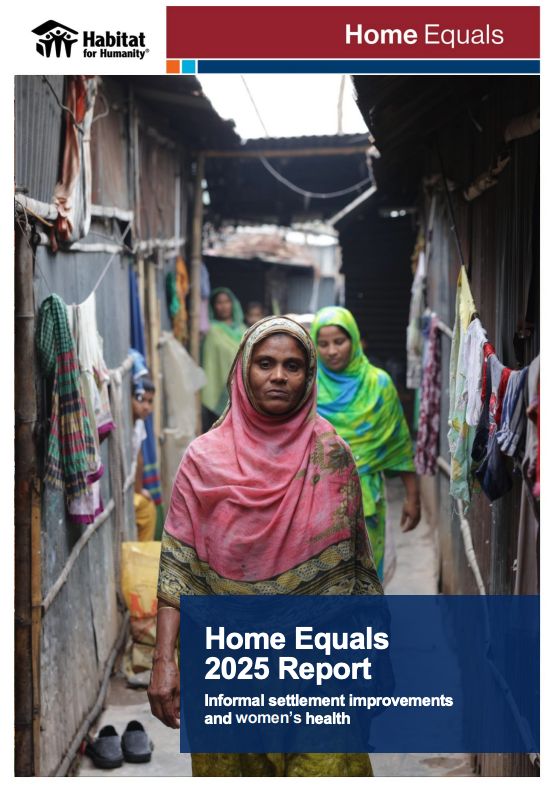Habitat for Humanity Research: Home Equals - Housing, Health and Women’s Wellbeing
New research from Habitat for Humanity highlights what Coalition to End Women’s Homelessness, and our partners see every day in Aotearoa: that adequate housing is foundational to women’s health, safety, and equality.
The Home Equals 2025 report, Informal Settlement Improvements and Women’s Health, shows that improving housing in informal settlements has powerful benefits for women and their communities. Women are disproportionately impacted by poor housing, facing greater health risks, gender-based violence, and barriers to economic opportunity.
Key findings:
20.3 million illnesses could be prevented globally
42.9 million cases of gender-based violence avoided
80,200 preventable deaths, including maternal deaths, reduced
At CEWH, we know that housing is a women’s health issue.
Our research Ngā Ara ki te Kāinga highlights:
There are significant health and mental health implications of homelessness for women.
Research identifies health inequities associated with homelessness, including a shorter life expectancy, more frequent health problems, and increased use of emergency and hospital services (Yohannes et al., 2023).
For some women, illness and poor health are noted as significant drivers of initial homelessness (Parkes-Hupton, 2023; Yohannes et al., 2023).
Our interview data indicated that women experiencing homelessness were more likely to suffer from mental illnesses, such as bi- polar disorder, schizophrenia, PTSD, and depression, and homelessness often worsened their mental health.
Drug and alcohol addiction often coincided with mental health conditions as women self medicated. For some women, this led to cycles of substance abuse to cope with their worsening mental health, poor living situations, and fractured relationships.
In Aotearoa, women facing housing deprivation are more likely to experience trauma, poverty, and poor health outcomes. Like Habitat for Humanity, we believe bold, gender-responsive housing strategies must be central to both health and equity policy.
The call is clear: secure housing saves lives. It's time for systems, here and globally, to reflect that.
Read the full report here.

